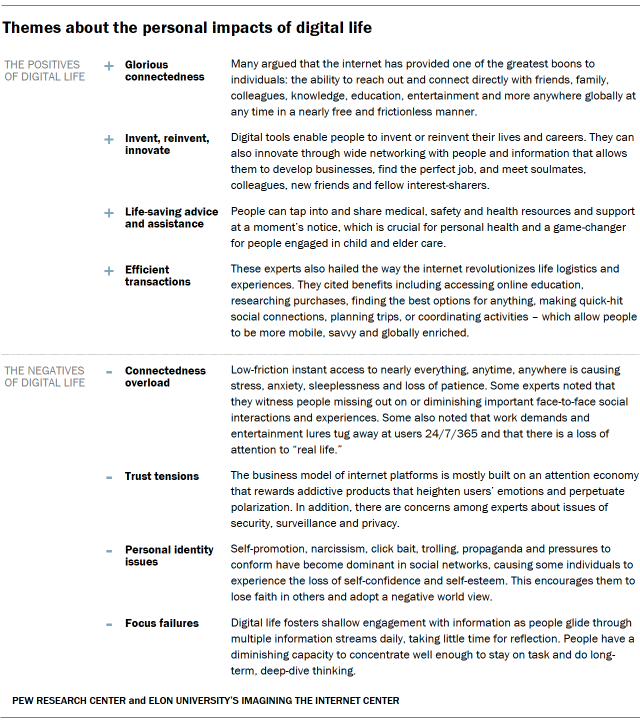 Technology experts and scholars have never been at a loss for concerns about the current and future impact of the internet.
Technology experts and scholars have never been at a loss for concerns about the current and future impact of the internet.
Over the years of canvassings by Pew Research Center and Elon University’s Imagining the Internet Center, many experts have been anxious about the way people’s online activities can undermine truth, foment distrust, jeopardize individuals’ well-being when it comes to physical and emotional health, enable trolls to weaken democracy and community, compromise human agency as algorithms become embedded in more activities, kill privacy, make institutions less secure, open up larger social divisions as digital divides widen, and wipe out untold numbers of decent-paying jobs.
An early-2018 expert canvassing of technology experts, scholars and health specialists on the future of digital life and well-being contained references to some of those concerns. The experts who participated in that research project were also asked to share anecdotes about their own personal experiences with digital life. This report shares those observations.
Specifically, the participants in the nonscientific canvassing were asked:
Please share a brief personal anecdote about how digital life has changed your daily life, your family’s life or your friends’ lives in regard to well-being – some brief observation about life for self, family or friends. Tell us how this observation or anecdote captures how hyperconnected life changes people’s well-being compared to the way life was before digital connectivity existed.
Many of these experts wrote about a number of powerful ways digital life makes things better. Some themes:

The remainder of this report draws from elaboration of these ideas by respondents who shared anecdotes and observations. It is broken into three chapters: 1) anecdotes and comments about the positives of digital life; 2) anecdotes and comments about potentially harmful aspects of that life; and 3) responses in which people’s statements or anecdotes were fairly evenly split with both pros and cons of digital life. Some responses are lightly edited for style.


 Shareable quotes from experts about the impact of digital life
Shareable quotes from experts about the impact of digital life